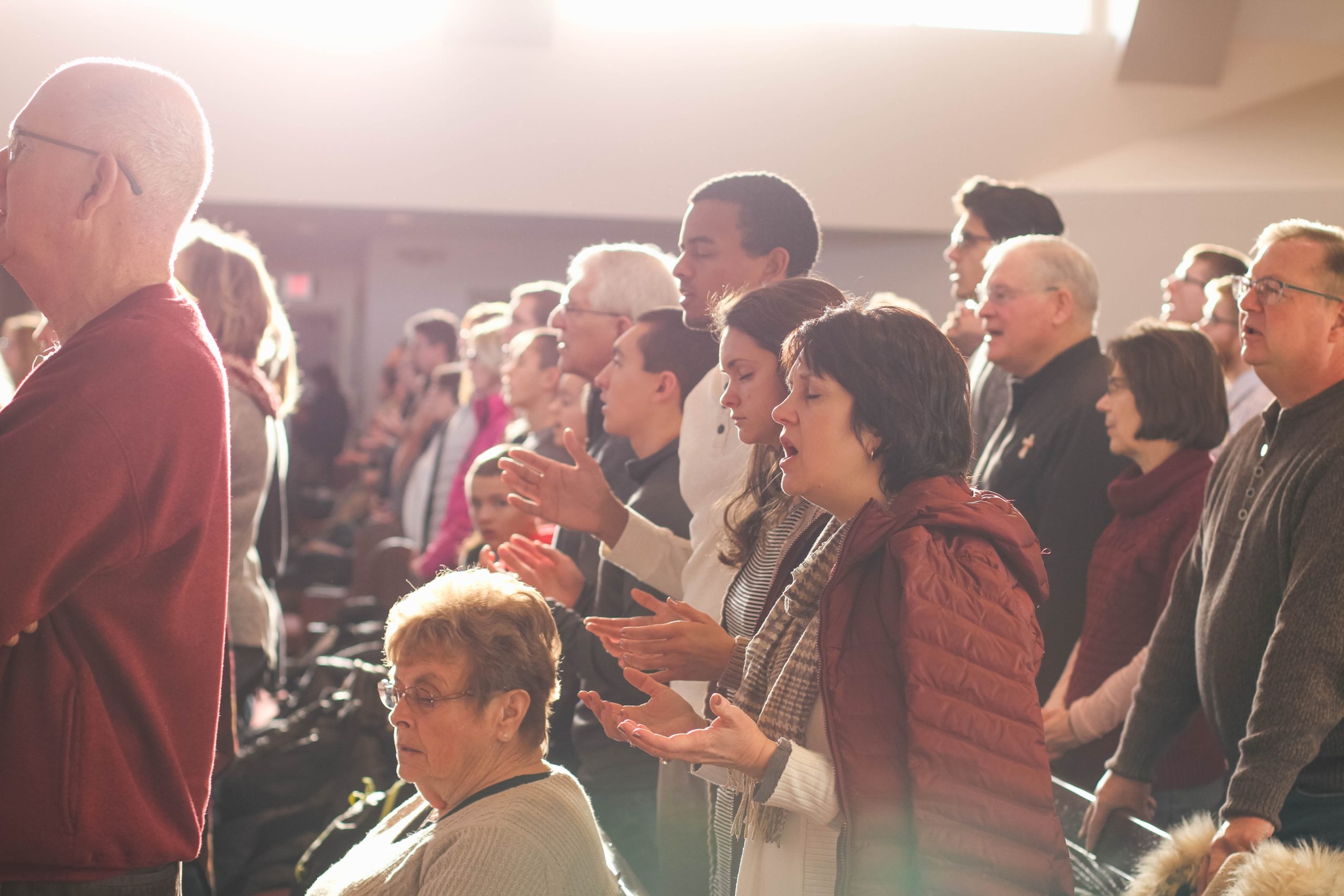
I love to hear God's word taught in congregational worship. I love to listen to the truths of the gospel unfolded, proclaimed with passion, and applied to my life. I love to hear God magnified while I am urged to believe and obey. I love to have my sisters and brothers teach the word of Christ to me in our weekly church gatherings. All that to say—I love congregational singing.
In Colossians 3:16, Paul commands the church to "let the word of Christ dwell in you richly." "The word of Christ" refers to the message about Jesus—that is, the good news of Jesus Christ crucified for sins, raised from the dead, and all that this entails. The means through which this "gospel-indwelling" will happen is "teaching and admonishing one another in all wisdom." Every Christian—men, women, and children—has the responsibility to teach and admonish every other Christian in the church. And how is this done? The gospel indwells God's people through "singing psalms and hymns and spiritual songs, with thankfulness in your hearts to God."
In this first (or only two) instructions on local church singing, we learn that a central purpose of congregational song is to teach the gospel to one another such that it dwells within us. Every Sunday, the local church assembles as a body of preachers, commanded by God, to instruct and exhort each other in the person and work of Jesus through faith-filled singing.
What implications should this have for our approach to church music?
1. Pick songs that are full of the gospel.
If "the word of Christ" dwells in us through "singing psalms and hymns and spiritual songs," then the gospel must be in our song-selections. The two basic and central facts of the gospel are that "Christ died for our sins" and "was raised on the third day" (1 Corinthians 15:3-4). Remove these, and we have something less than "the word of Christ."
Not every congregational song expounds on the death and resurrections of Jesus. But a wise service planner—one that understands the purpose of church singing—will be sure to choose songs that do. (And we would do well to write more that do!) A church with a repertoire of songs that give expression to gospel-truth will be a people in which the "word of Christ dwells richly."
2. Honor corporate singing as an essential, weekly preaching ministry.
No one can believe the word of Christ unless they hear it, and no one can hear the word of Christ without a preacher (Romans 10:14-15). To preach is to herald a message, proclaiming it publicly as one appointed to do so. Human preachers are God's ordained means of delivering the gospel.
I love the "pulpit-ministry" of the church. I have been delivering sermons for over two decades. I celebrate expositional preaching as an essential component of corporate worship. But, it is not the only vital preaching ministry of the gathered church.
Colossians 3:16 commissions every believer as a preacher, one tasked with the responsibility to teach and admonish through song. The pastor who gives meticulous attention to the composition and delivery of quality sermons is right to do so. But insofar as he neglects the curation of gospel-content in corporate song, he disregards an essential preaching ministry of the church. Singing is a God-ordained, God-commanded means through which the word of Christ and the Holy Spirit indwell God's people (cf Ephesians 5:18-19).
Teach your congregation to sing. Remind them what a critical ministry God entrusts to them. Give priority to the voices of the congregation. Corporate song is not intended to be a personal and private encounter with God—"just me and Jesus"—though we do encounter him personally in it! It is designed to be a corporate means of teaching. Too often, when the room is dark, the stage is central, and the music is loud, the teachers are hidden and silenced. Instead, to whatever degree you are able, design your accompaniments, liturgy, setting, and volume to amplify the voices of the people. Aim to get them to sing to each other with thankfulness in their hearts to God. (And when the church sings loud, the worship leaders can back off!)
3. Use songs to equip your people to deal with sin, suffering, and death in a gospel-centered manner.
Our spoken sermons are essential to feeding the flock the gospel. Profound truths are understood; important facts are reinforced; sin is rebuked; faith is exhorted; God-wrought faith is born and sustained. May such sermons always be preached every Sunday the local church gathers!
But let's be honest, pastors. No one will be humming our sermons on their death bed. But they will be humming our songs.
Songs are portable preaching. Through metrical lines, rhyme patterns, and tunes, they lodge themselves in the heart and mind. Through them, we carry the gospel with us so that it can be recalled and heralded almost anywhere at any time.
Our people are going to sin, suffer, and die. What they need most in each of these settings is to remember the person and work of Jesus Christ. They need to remember that Christ bore the wrath of God in their place on the cross. They need to remember that Christ triumphed over death in his resurrection. They need to remember that Satan is silenced and cast out through the forgiveness of sin by grace through faith. They need the gospel.
Choose songs to help your people resist and repent of sin. Choose songs to help your people suffer in faith. Choose songs to help your people die well.
Don't pit singing and the sermon against each other. Listening to a sermon is an act of worship. And singing is an act of preaching. Don't neglect it.

